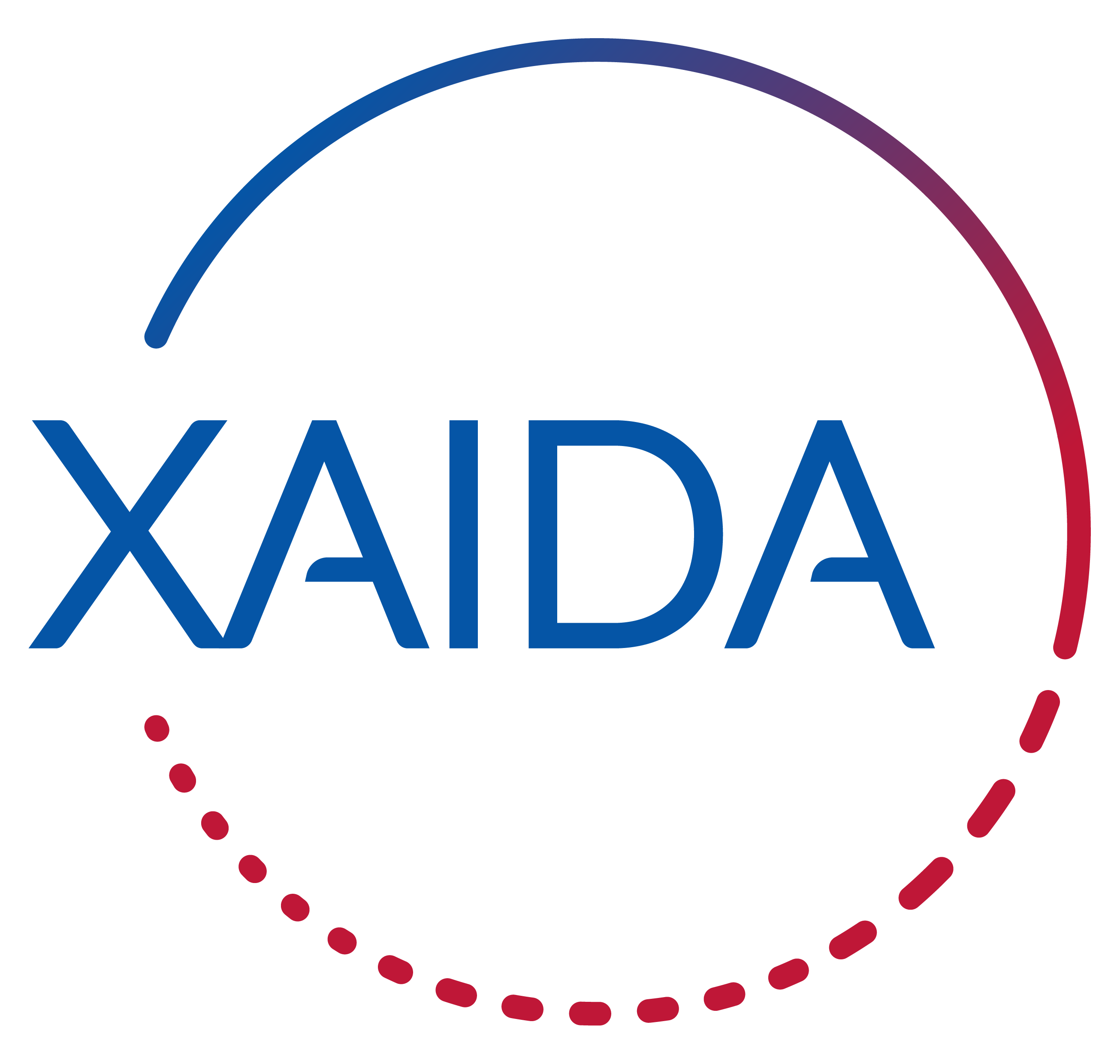XAIDA Webinar #3

The 3rd session of our webinar will occur on March 19th at 2 PM CET. José M. Tárraga will speak about Exploring interactions between socioeconomic context and natural hazards on human population displacement.
Check out the details to attend, discuss and follow the discussion!
SUMMER TRAINING SCHOOL: I2C
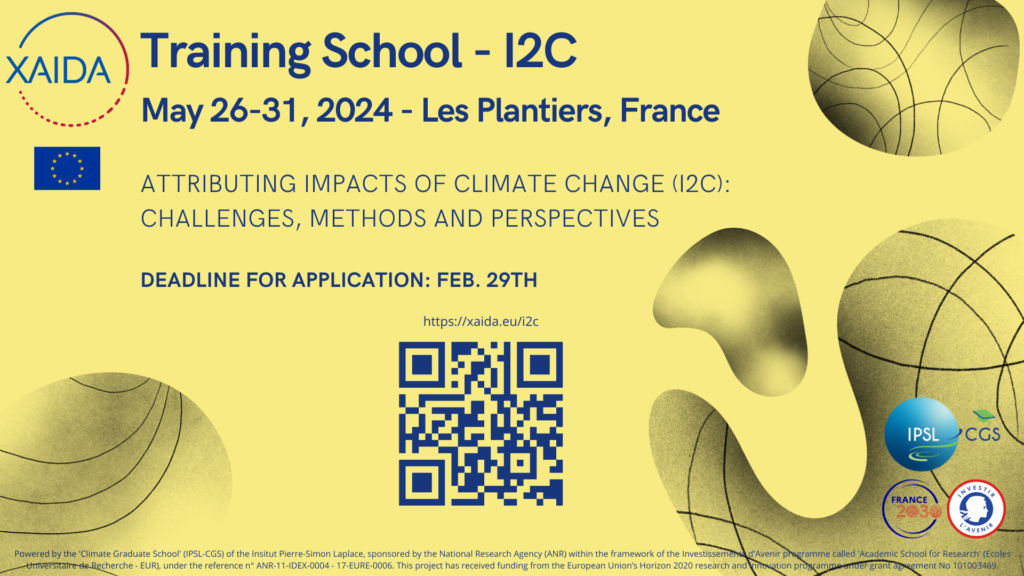
The next XAIDA training school entitled ‘Attributing Impacts of Climate Change (I2C): Challenges, Methods and Perspectives’ took place on May 26-31, 2024 in the Les Plantiers village, in France.
Check out the lectures and details.
XAIDA Webinar #2
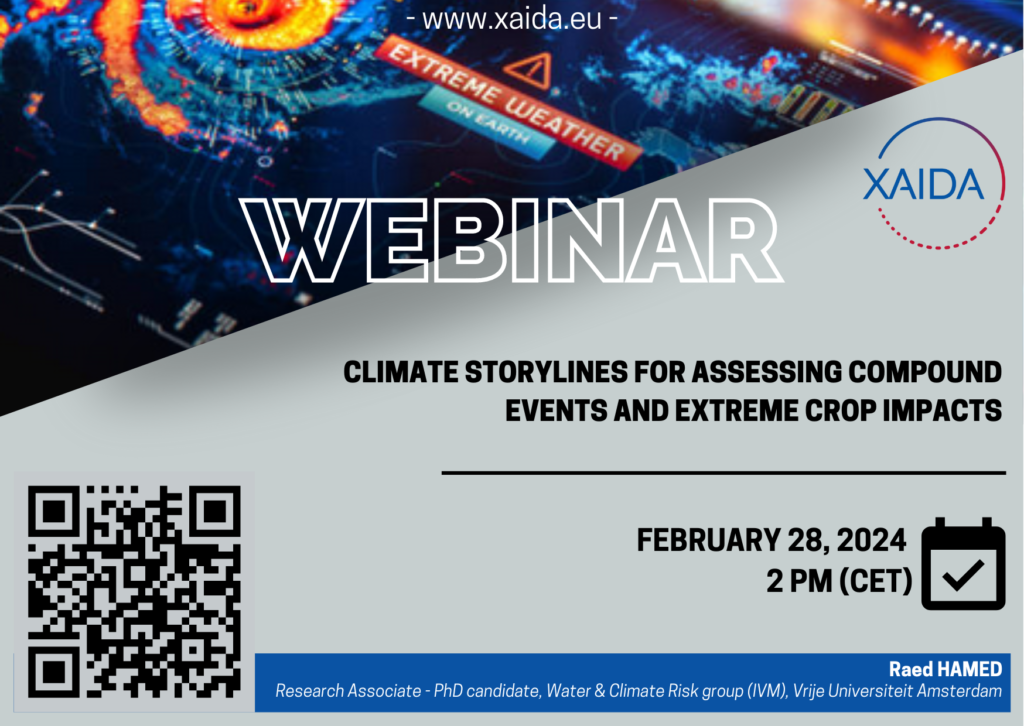
The 2nd session of our webinar will occur on Feburary 28th at 2 PM CET. Raed Hamed (VU) will speak about Climate storylines for assessing compound events and extreme crop impacts.
Check out the details to attend, discuss and follow the discussion!
XAIDA Webinar #1
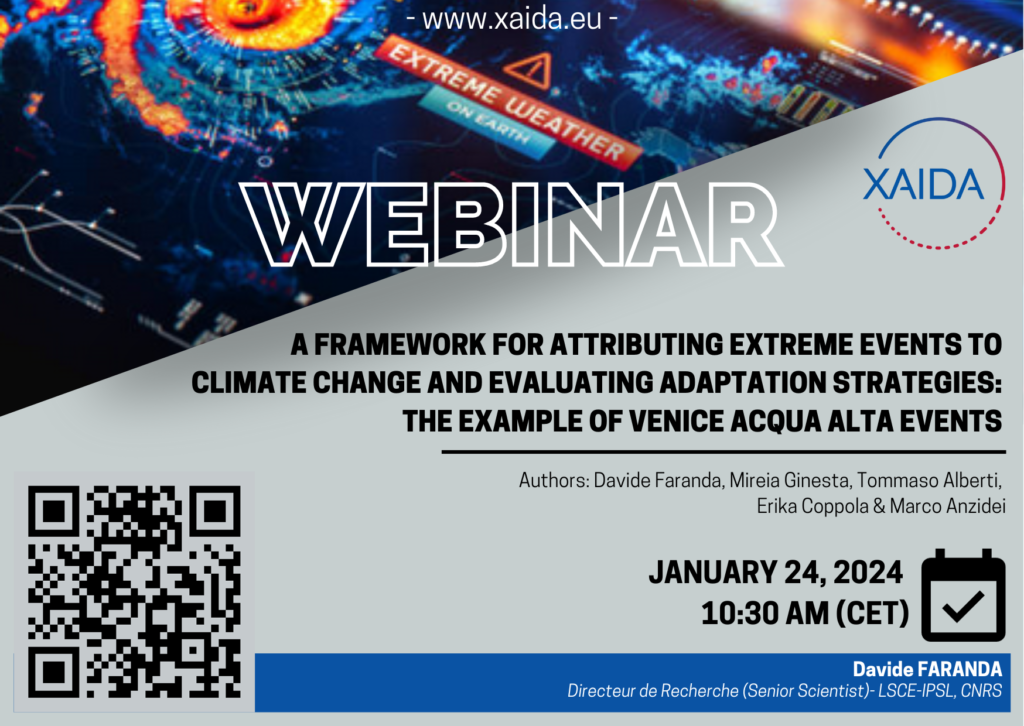
The 1st session of our webinar will occur on January 24th at 10:30 AM CET. Davide FARANDA (CNRS) will speak about A framework for attributing extreme events to climate change and evaluating adaptation strategies: the example of Venice Acqua Alta events.
Check out the details to attend, discuss and follow the discussion!
How can we attribute weather extremes to climate change?
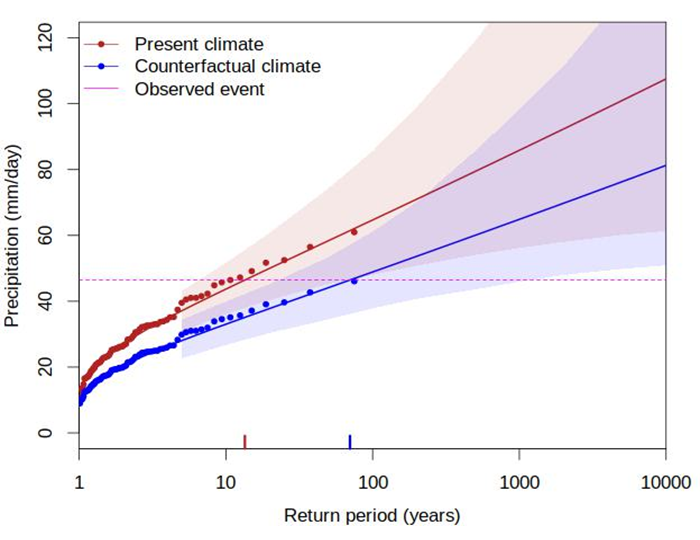
With climate change we see an increase in extreme weather events around the globe; occurrences of floods, heatwaves, and droughts. Within XAIDA, we aim to determine to what extent human induced climate change has altered the probability of occurrence and/or intensity of an extreme weather event, also known as attribution science. Several institutions work on attribution science, using different but complementary methodological frameworks. In this brief we explain the three main approaches used within XAIDA: unconditional probabilistic analysis, circulation analogues, and the storyline approach.
CHANGE OF GOVERNANCE

Life of the project – We are happy to announce that Dim COUMOU is now the Scientific Coordinator of the XAIDA Project, unanimously approved by the Consortium. Read more to know the context and the other changes in the XAIDA governance.
DESPITE GLOBAL WARMING, COLD SPELLS SUCH AS WITNESSED IN THE 1980’s IN WESTERN EUROPE ARE STILL POSSIBLE
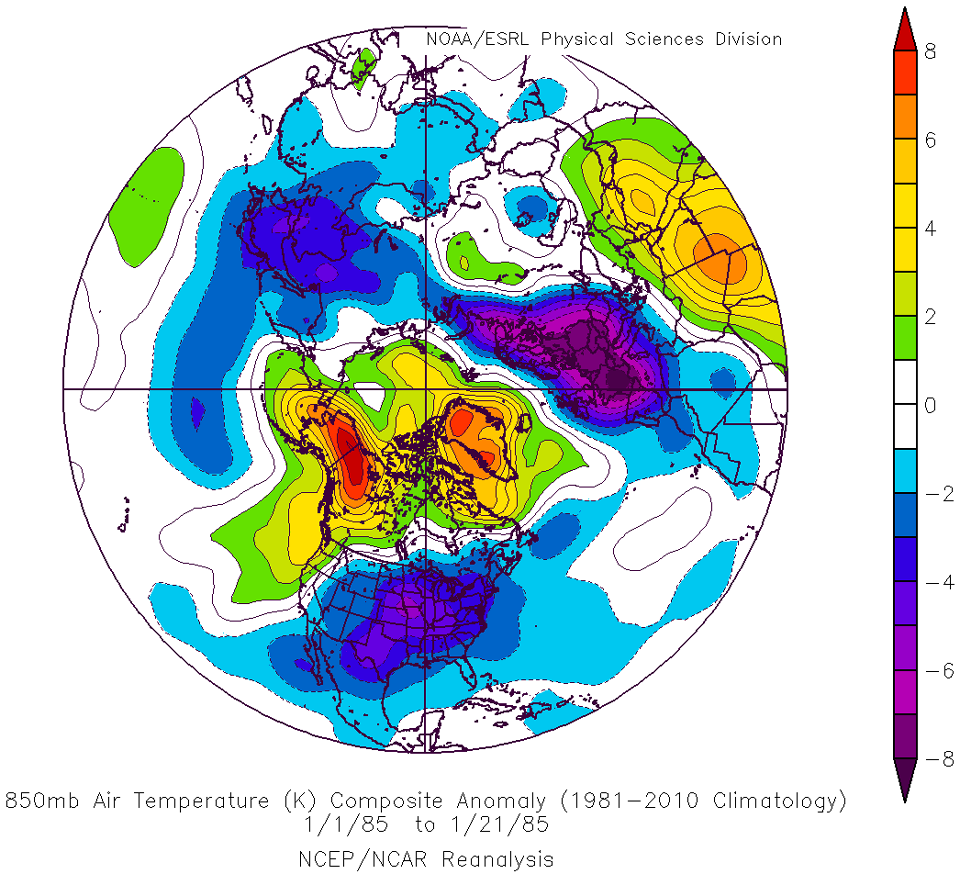
Extreme cold spells are still possible today in Western Europe, even with current warming trends.
The atmospheric circulation patterns that drive extreme low temperatures, e.g. as in January 1985, remain possible in current winters.
Under such conditions we anticipate that with current regional warming trends, temperatures would only be about 1.4°C warmer than in 1985, with potential impacts on the electricity grid, and health.
As an example, a circulation-induced 1985-like cold spell in today’s climate would likely stand at around -9°C over France for minimum temperatures, which would still be amongst the 5-10 coldest cold spells observed in the past five decades.
The “Medicanes” (Mediterranean Hurricanes) and climate change
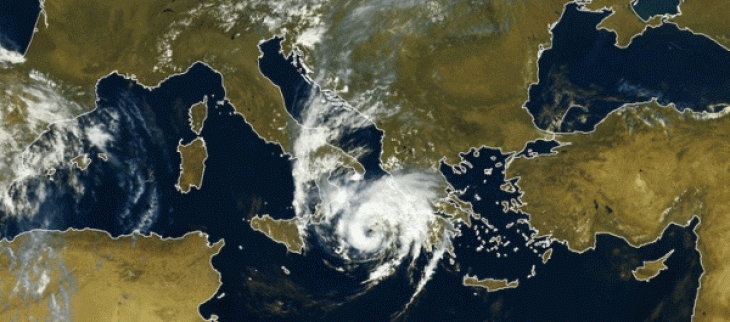
Medicanes are Mediterranean cyclones whose characteristics resemble those of tropical cyclones. They are often associated with hurricane-force winds and heavy precipitation. With a frequency of 1-2 per year, it is a challenge to determine whether their frequency should increase or decrease in a warmer world. Their intensity is however projected to increase due to the warming projections for the Mediterranean sea, the main source of energy for medicanes.
EARLY 2022 HEAT WAVES IN EUROPE AND CLIMATE CHANGE
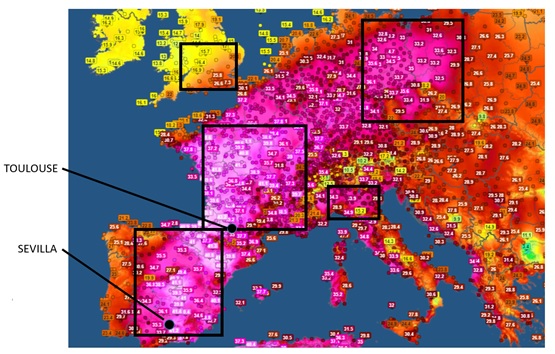
The summer of 2022 was pounded by a series of heat waves in Europe. The first, an outstanding early heat wave, took place in mid-June 2022 across Europe, mostly hitting Spain, France, but also other parts of Europe. The early character of the heat, in a crucial season for agriculture and ecosystems, is likely to have induced specific impacts on health and agriculture, which will need to be assessed. During the XAIDA Summer School in Trieste, students have studied the relation of this heatwave to climate change.
WINTER DROUGHT IN THE MEDITERRANEAN: WHAT DO WE KNOW?
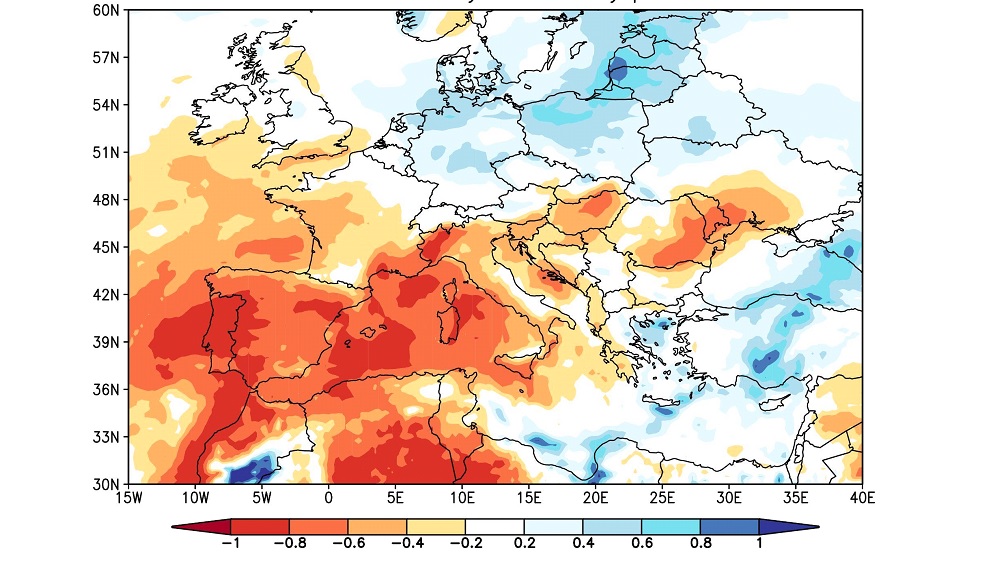
Since October 2021 and until mid march 2022, a severe drought has gripped the Western Mediterranean area, putting harvests from rain-fed crops potentially at risk. Winter is a crucial season for water resources in this region. What is the current state of our knowledge?
